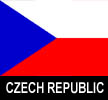ROUNDUP: Czech government falls during EU presidency
 Prague - The Czech government of Prime Minister Mirek Topolanek collapsed Tuesday after it lost a vote of no-confidence in parliament midway through the country's presidency of the European Union.
Prague - The Czech government of Prime Minister Mirek Topolanek collapsed Tuesday after it lost a vote of no-confidence in parliament midway through the country's presidency of the European Union.
The leftist opposition was helped by four lawmakers elected to Topolanek's ruling coalition in toppling the cabinet by the slimmest of majorities, 101 votes.
Topolanek collected 96 votes in the 200-seat lower house after failing to meet the renegades' demands in last-minute talks. Three lawmakers were absent from the vote.
The cabinet's collapse is likely to complicate the Czech Republic's efforts to battle the economic slump and weaken its EU presidency ending June 30.
"It could complicate our negotiating strength," Topolanek told reporters after the vote. "Our standing could weaken."
In addition, the fall of the government threatens to hinder Topolanek's key foreign policy projects, including efforts to ratify bloc's reform pact, the Lisbon Treaty.
The premier said the treaty's fate largely depends on his standing within his Civic Democratic Party. "If I cease to be in control of the situation ... the Lisbon Treaty will not pass," he said.
Analysts agreed that Topolanek's demise may deliver a final blow to the Czech-US missile defence radar treaties, already put on ice owing to a lack of support in the lower house.
"The great question is whether we will push through the lower house and the Senate the treaties that would have been on the agenda," Foreign Minister Karel Schwarzenberg told German Press Agency dpa, referring to the missile shield pacts as well as the Lisbon Treaty.
The key to future developments is in hands of President Vaclav Klaus, who declined to comment on the outcome of the vote. "The next steps will follow a standard constitutional path," he said in a statement.
Meanwhile, Topolanek's cabinet is to govern in a caretaker capacity.
The premier said he plans to hand his resignation to the president on Wednesday afternoon or Thursday. Then, he expects Klaus to re-appoint him in line with a custom of designating the leader of a party that won the election.
Topolanek's party would insist on early elections if his attempt at forming a new government fails, the premier said.
The main opposition Social Democrats, who initiated the motion, favour a caretaker government or autumn elections.
Personal animosities between Topolanek and Social Democratic leader Jiri Paroubek may, however, prevent them from reaching a quick deal.
Paroubek has attacked Topolanek since losing the 2006 election that produced a tie. It took seven months for Topolanek to form a workable cabinet, which won a confidence vote in January 2007 thanks to opposition renegades.
The Social Democrats tried to vote down Topolanek's government four times in its two years in power before finally succeeding on Tuesday. "The situation had been maturing to this," the premier said.
The Social Democrats called the motion amid a scandal in which the premier is facing allegations of interfering with media independence.
Topolanek, who could not afford to lose a single vote in the closely-divided lower house, admitted to asking an aide to help a cabinet-supporting unaffiliated lawmaker ward off "media pressures."
The aide then asked a television reporter to shelve a report on lawmaker's alleged subsidy fraud, intervention of which the premier claimed to have no knowledge. (dpa)